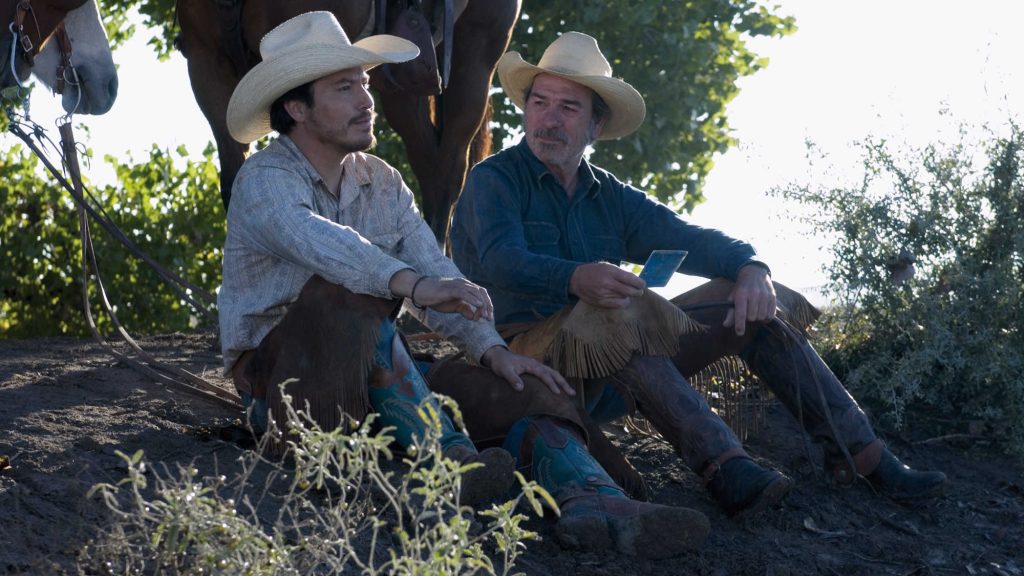The Three Burials of Melquiades Estrada, written by Guillermo Arriaga and directed by Tommy Lee Jones, follows Pete the rancher in his journey to fulfill his friend’s wish to be buried in his hometown.
Melquiades Estrada is an undocumented Mexican immigrant in the US, which makes him one of the people to whom the government doesn’t gives any value. As Melquiades is killed unjustifiably and his killer doesn’t bear any consequences, the treatment of the situation forces Pete to take the matter in his own hands at the expense of his mental health. The film invokes questions around whose life matters. Do lives of undocumented immigrants matter?
The film provides a positive image of Mexicans through the likable victim, Melquiades Estrada, and several other Mexican characters. They appear in scenes where they show compassion and kindness, as opposed to the government agencies’ attitude towards them. For instance, the Mexican woman saves Norton’s life even though he had broken her nose earlier. While on the run, the border crossers stop to help out the injured man. They share everything they have with the Americans and give drinks for the road.
Whereas the Mexicans are represented with all the positive features, the strict policies and brutal enforcements regarding the border issues are put into conversation with being human and humane. Despite the political hostility against undocumented immigrants in the US, the two characters ironically become undocumented migrants in Mexico, and it is those lands where they find peace and closure.

Even though it is set in our times instead of the late nineteenth century which the classical western films tend to take place in, one can notice the encounter between civilization and the frontier in the film. That encounter is what the westerns are all about. The western hero traditionally brings civilization to the wilder lands. With a modern-day twist, our hero Pete doesn’t believe civilization is what the government assumes.
Pete is against the understanding of modernity within government structures, as it seems to be brutally inhumane against those undocumented immigrants. The film supports a humane approach with a less hostile border.
The classical Western genre is known to valorize the white man while engaging in brutal and racist punishments in pursuit of civilization. However, Pete embraces grieving instead of a murderous vengeance after his friend’s death. Therefore breaking genre conventions and playing with audience expectations, Arriaga figures the best way to convey this story is to distort a traditionally well-known genre.
Pete’s cause opens up broader, social, and political issues that problematizes the treatment of immigrants in general. The film creates a space to question the government’s attitude towards the immigrants through Melquiades Estrada, whose death, and therefore life, is considered insignificant.
